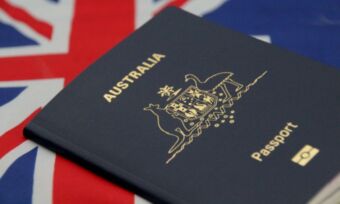How does one-way travel insurance work?
Typically, you would need to take out a one-way travel insurance policy before you start your trip, when you’re still in Australia. It usually can’t be taken out when you are already overseas (although a handful of providers do allow this).
Most one-way policies will let you apply to extend your cover while you’re overseas. You’ll usually need to do this before your policy expires and will need to keep in mind the maximum period of cover. This is generally up to one year. You’ll also typically only be able to make a claim while you’re overseas.
Policies will generally expire 24 hours after you reach your final destination (the last country you go to). You will usually be required to nominate your final destination when you take out the policy and this may be where you will be sent in the event of a medical emergency.
In terms of cost, one-way travel insurance works in a similar way to two-way insurance whereby you are insured for the number of days you nominate.
Which insurers offer one-way travel insurance?
According to Canstar Research, at the time of writing, the following insurance providers offer cover even if you have no return ticket, provided you’re otherwise eligible for cover:
- CoverMore
- FastCover
- Insure&Go
- insure4less
- Travel Insurance Direct
- Travel Insurance Saver
- Travel Insuranz
- World Nomads
Be aware that some policies are still only available if you ultimately intend to return to Australia. To find out the full terms and conditions and any limits and exclusions, contact the insurer directly or read the product disclosure statement (PDS).
What does one-way travel insurance cover?
One-way travel insurance will typically have many of the same benefits as a standard travel insurance policy. For example, you will commonly be covered for:
- Overseas medical expenses
- Cancellation fees
- Lost, stolen or damaged luggage and personal items
- Additional expenses (such as accommodation, travel and meals if your trip is disrupted or cut short due to an insured event)
- Travel delays
- Repatriation
- Personal liability
Cover will vary across insurance providers and policies, so it’s important to read the fine print to understand what you will and won’t be covered for.
What does one-way travel insurance not cover?
If you need to cut short your trip and return to Australia, a one-way policy will typically not cover the cost of your return ticket. For example, if you were injured and needed to return home, if your insurer arranged your transport back to Australia, it would usually deduct the cost of the one-way from any additional payout.
Like two-way travel insurance policies, one-way policies will typically also not cover claims resulting from certain circumstances. For example, this includes:
- Pre-existing medical conditions
- Participating in high-risk activities, such as skiing and snowboarding (unless you have added this to your policy)
- Unlawful or reckless behaviour
- Using or consuming alcohol or drugs
Again, it can be a good idea to read your policy carefully to see exactly what exclusions apply.
Travel insurance if you are already overseas
You generally cannot buy one-way travel insurance if you are already overseas. So, if you later decide to return to Australia after your existing one-way insurance expires, you’ll need to buy a separate insurance policy to be covered for your return trip.
There are a few providers who offer travel insurance for Australians who are already overseas. However, be aware that there is often a waiting period (usually of a couple of days) from the time you buy the policy before you will be covered.
Travel insurance if you are moving overseas
If you are emigrating overseas to live or work, one-way travel insurance can cover you for your trip over. It can also cover you if you’re planning on visiting multiple countries before settling in your final destination.
Keep in mind that if you nominate where you are emigrating to as your final destination, your policy will typically expire 24 hours after you leave immigration control in that country.
SmartTraveller says you may need to consider getting local insurance to cover your needs rather than long-term travel insurance. If you have employment in the country you are moving to, SmartTraveller says to check whether you are insured with your employer before you leave. It can be a good idea to organise this before you travel so you don’t have a break in cover.
While Australia does have reciprocal health care agreements with 11 countries, including the UK and New Zealand, this might not necessarily meet your needs. For example, it generally only covers publicly funded, medically necessary care. Therefore, you may want to consider taking out more comprehensive local health insurance.

































 As Canstar’s Group Manager, Research, Ratings & Product Data, Josh Sale is responsible for the methodology and delivery of Canstar’s Travel Insurance Star Ratings. With tertiary qualifications in economics and finance, Josh has worked behind the scenes for the last five years to develop Star Ratings and Awards that help connect consumers with the right product for them.
As Canstar’s Group Manager, Research, Ratings & Product Data, Josh Sale is responsible for the methodology and delivery of Canstar’s Travel Insurance Star Ratings. With tertiary qualifications in economics and finance, Josh has worked behind the scenes for the last five years to develop Star Ratings and Awards that help connect consumers with the right product for them.






